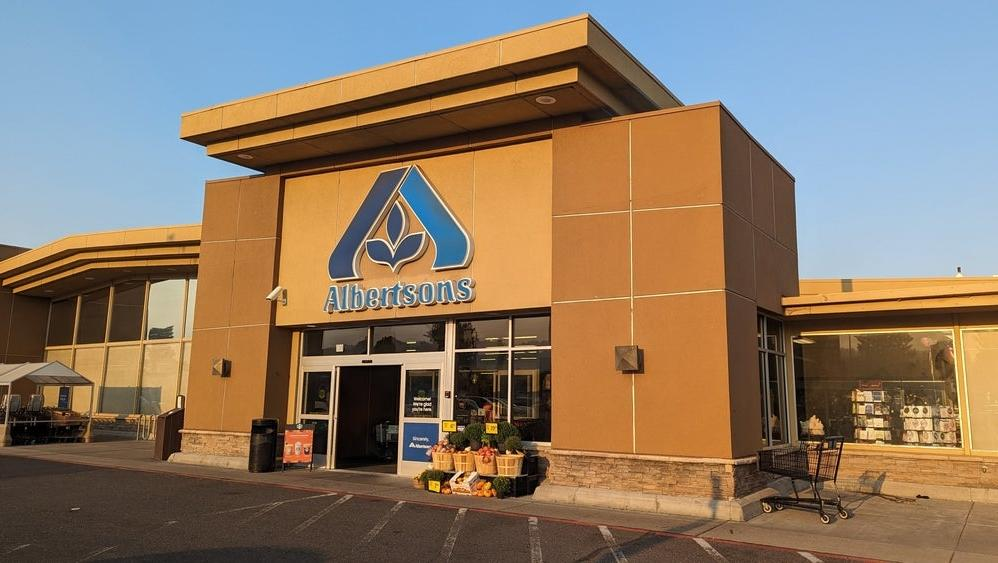The Biggest Grocery Merger In History Might Be Dead
The FTC just sued to block Kroger’s acquisition of Albertsons.
The long awaited merger of the two largest grocery chains in the U.S., Kroger and Albertsons, might be dead in the water. The Federal Trade Commission has sued to prevent Kroger's $24.6 billion acquisition of Albertsons, noting that the deal would "eliminate fierce competition between Kroger and Albertsons, leading to higher prices for groceries and other essential household items for millions of Americans."
The FTC has brought the complaint to federal court, and The Offices of the Attorneys General of Arizona, California, the District of Columbia, Illinois, Maryland, Nevada, New Mexico, Oregon, and Wyoming are all joining the lawsuit.
The Kroger–Albertsons merger, explained
Back in 2022, the two grocery giants announced their plan to join together, a partnership that was met with scrutiny and backlash almost immediately. When Kroger agreed to buy Albertsons for $24.6 billion, the potential merger put a number of associated regional stores, such as City Market, Fred Meyer, Jewel-Osco, Mariano's, Ralphs, Safeway, and more under the FTC's scrutiny. Together with their affiliates, Kroger and Albertsons control more than 6,000 stores across the country.
The sheer quantity of stores involved in the merger raised red flags to the FTC and other groups; the deal had the potential to create a monopoly in the grocery industry, increasing prices for customers who would no longer have another major brand competing for its loyalty. From the beginning, the two supermarket companies have made various promises to ease both the public's and the government's concerns and help move the deal along.
In October 2022, Kroger stated it would use $1 billion from the merger deal to raise employee wages and benefits and reinvest $500 million into cost-saving measures for customers. Most recently, Kroger released a statement reemphasizing its commitment to lowering grocery prices should the merger go through, and citing past mergers in which it also lowered prices for customers. Both grocery chains also committed to sell a collective 413 stores, a potential sale amounting to $1.9 billion, should the FTC grant its approval.
The FTC’s pushback on Kroger and Albertsons
Unfortunately for Kroger, the FTC is suing to block the merger, alleging the deal would narrow consumers' choices for where to shop for groceries and lead to lower quality products and services. The FTC also notes concerns for grocery store workers should the deal go through.
"This supermarket mega merger comes as American consumers have seen the cost of groceries rise steadily over the past few years," said Henry Liu, Director of the FTC's Bureau of Competition, in the press release. "Kroger's acquisition of Albertsons would lead to additional grocery price hikes for everyday goods, further exacerbating the financial strain consumers across the country face today. Essential grocery store workers would also suffer under this deal, facing the threat of their wages dwindling, benefits diminishing, and their working conditions deteriorating."
In regards to the promises made by Kroger and Albertsons to divest a large number of stores, the FTC says it's not enough and doesn't actually address the concerns at hand. Per the FTC, even with competitor C&S Wholesale Grocers committing to acquiring the stores Kroger and Albertsons have promised to sell off, there wouldn't be sufficient competition with the grocery giant post-merger.
A representative for Albertsons disputes this notion. "Albertsons Cos. merging with Kroger will expand competition, lower prices, increase associate wages, protect union jobs, and enhance customers' shopping experience," a spokesperson told The Takeout via email. "If the Federal Trade Commission is successful in blocking this merger, it would be hurting customers and helping strengthen larger, multi-channel retailers such as Amazon, Walmart and Costco – the very companies the FTC claims to be reining in – by allowing them to continue increasing their growing dominance of the grocery industry."
The Albertsons spokesperson further noted to The Takeout that Walmart's share of the U.S. grocery market is 29%, while Kroger and Albertsons combined would have a 16% market share before divesting any of the promised stores.
"We are disappointed that the FTC continues to use the same outdated view of the U.S. grocery industry it used 20 years ago, and we look forward to presenting our arguments in Court," the spokesperson added.
